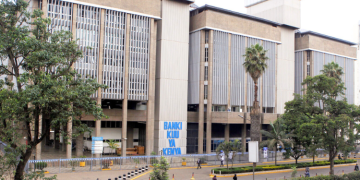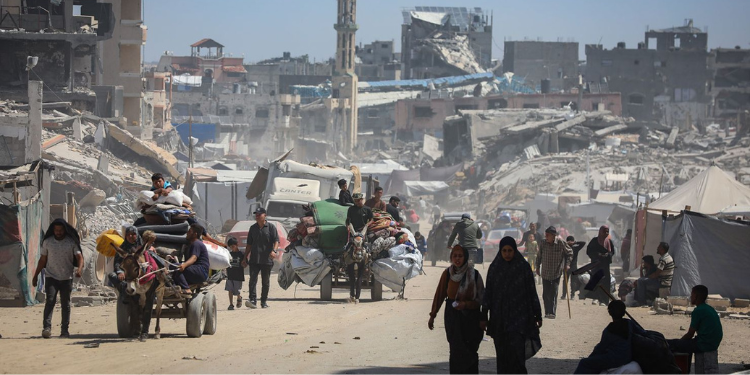Israel is facing mounting criticism over its reported plan to delay the rebuilding of Gaza by citing the missing bodies of deceased hostages.
The move, described by analysts as a strategic obstruction, has ignited debate over the humanitarian and political implications of using hostage remains as leverage.
Hostage Remains Strategy
According to Israeli sources, at least 28 hostages taken into Gaza during the October 7 attacks are presumed dead. While 20 hostages are confirmed alive and expected to be released, the remains of 8–10 deceased individuals have not been located in the ruins of northern Gaza.
Israeli officials argue that the search for these bodies must be prioritized before any reconstruction efforts can begin.
This includes halting the rebuilding of homes, hospitals, schools, and mosques, as well as blocking the delivery of humanitarian aid and civil infrastructure such as caravans and sanitation equipment.
The Israeli Defense Forces (IDF) have reportedly cordoned off large areas of Gaza, citing the need for forensic operations and security sweeps.
These zones are off-limits to aid workers, engineers, and local authorities, effectively freezing recovery efforts.
Israeli Manufactured Excuse
Shaiel Ben-Ephraim, an Israeli academic and political commentator, has accused the government of exploiting the hostage situation to prolong Gaza’s devastation.
In a widely circulated statement, Ben-Ephraim claimed:
“The problem with the bodies is Israel’s fault. But that will not stop it from cynically leveraging it to prevent Gazans from being able to live normal lives.”
He further alleged that the strategy is part of a broader plan to render Gaza uninhabitable, facilitating ethnic cleansing and creating conditions for renewed military action.
Amnesty International and Human Rights Watch have called for independent investigations into the use of hostage remains as a reason for obstructing civilian recovery.
Human rights organizations have echoed these concerns, warning that the delay in reconstruction could violate international humanitarian law.
Legal and Diplomatic Fallout
While the Geneva Conventions recognize the importance of recovering war victims, they also mandate the protection of civilian infrastructure and the facilitation of humanitarian aid.
Professor Leila Sadat, a specialist in international law at Washington University, noted:
“The deliberate delay of reconstruction under the guise of hostage recovery raises serious questions about proportionality and intent. If the aim is punitive or strategic rather than humanitarian, it could constitute a breach of international law.”
Qatar, Egypt, and Turkey have urged Israel to expedite the recovery process and lift restrictions on aid.
The United Nations Relief and Works Agency (UNRWA) has warned that continued obstruction could lead to a public health crisis, with thousands of displaced Gazans lacking shelter, clean water, and medical care.
Gaza’s Humanitarian Crisis Deepens
The humanitarian situation in Gaza continues to deteriorate as reconstruction remains frozen and aid deliveries are obstructed.
With over 1.5 million residents displaced, the region faces a collapse of essential services.
Hospitals are overwhelmed, operating with limited supplies and personnel and many schools have been repurposed as shelters, leaving thousands of children without access to education.
Clean water is scarce, and sanitation systems are failing, raising fears of disease outbreaks.
Also Read: Trump Reveals How Biden Allegedly Used FBI Agents Against Jan. 6 Demonstrators
Local officials report that entire neighborhoods remain in ruins, with no clear timeline for rebuilding.
“We are being punished twice,” said a municipal engineer in Khan Younis. “First by the bombs, now by bureaucracy.”
Joint Task Force to Locate Hostage Remains
As part of the Trump-brokered ceasefire agreement, a multinational task force has been formed to locate the missing bodies of Israeli hostages believed to be buried under Gaza’s rubble or lost in collapsed tunnels.
The task force includes Israel, the United States, Qatar, Egypt, and Turkey
Its mandate is to recover both living and deceased hostages within 72 hours of the ceasefire taking effect.
Also Read: Zelenskyy Reveals Russia Has Fired Over 3,100 Drones and 92 Missiles at Ukraine in One Week
The team is equipped with forensic, intelligence, and engineering units, and will use heavy machinery to excavate areas where bodies may be trapped.
Israeli officials, including hostage affairs coordinator Gal Hirsch, acknowledged that Hamas has lost track of up to 10–15 bodies, complicating the recovery timeline.
Some remains may have been handed to unaffiliated groups or buried in inaccessible areas.
Follow our WhatsApp Channel and X Account for real-time news updates.









































































